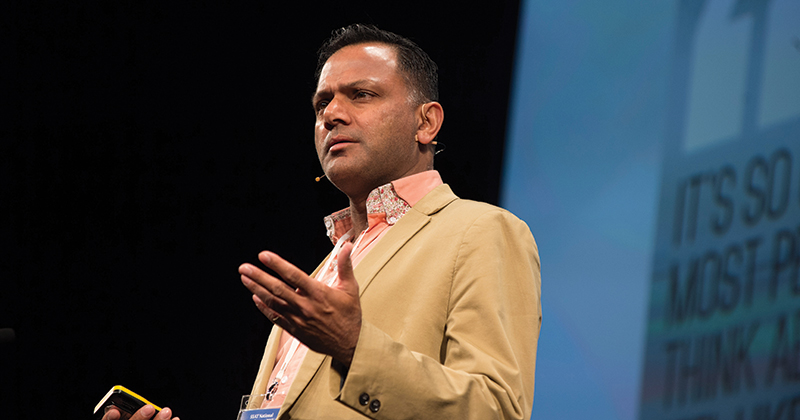Teachers should use a “rich and complex” understanding of memory to improve how pupils learn – throwing out rote-learning in favour of testing immediately after they’ve digested new information.
Dr Ashok Jansari, a cognitive neuropsychologist at Goldsmiths University, gave teachers tips for helping pupils consolidate their knowledge using memory research.
First, he warned, memory is “not a passive store” into which information can be poured.
Instead, pupils make use of two different kinds of memory, which are then divided again: short-term memory, which lasts for about a minute, and long-term memory, which is anything longer than that.
Longer-term memory is then split into procedural memory, which is for skills and automated actions, and declarative memory, which is for facts. Fact-based memory breaks down once more into episodic memory, which remembers events, and semantic memory, which recalls factual information.
Constant repetition isn’t sufficient
If schools wish to focus only on factual information, then evidence shows that pupils do not retain it well if they learn by rote.
A study of students in east Asia found those who learned purely by memorising performed worse across reading, maths and science than those who used learning strategies such as elaboration, where other information is attached to facts, such as by creating a phrase or analogy.
“Constant repetition isn’t sufficient,” said Jansari. “There is thinking in education that the main way to teach is by memorisation. We know that’s not the case.”
Another study showed that students remembered words better for longer if they attach meaning to words, rather than arbitrary facts about them.
A list of words was presented to three groups of students. One group was told to look for words with a particular letter in, another for words which rhymed with a sound, and the third group for words that meant something, such as an animal. Half an hour later, the students told to remember the meaning of words remembered them better than the other groups.
How pupils initially engage with information is “what increases the chances of remembering it later on”, he told the audience, with context helping it stick for longer.

But one of the most effective ways of helping pupils remember information in the long-term is to test them immediately afterwards, in a phenomenon called the “testing effect” discovered by US psychologists a decade ago.
Two groups of students were given prose to study. The first group was allowed to read it again. The second group was tested immediately on remembering the prose.
Five minutes later, both groups were tested on recalling the prose. In this immediate aftermath, the group which studied the prose a second time performed slightly better than the group tested straightaway.
But two days later, the group that was tested straightaway remembered the prose better, and after a week that margin had increased yet more significantly.
The act of “working with the information” straight after learning it “strengthens the memory process”, Jansari explained.
Research also shows pupils’ abilities to plan and control their behaviour will not fully develop until their early 20s because the frontal lobe responsible has not finished growing until then – meaning teachers should use learning strategies which do not rely too heavily on self-regulation.
More schools should also show pupils how to meditate as a way to “regulate and organise themselves”, as research shows it helps preserve these abilities.








The trouble is with Dr Jansari’s commentary is that it is either irrelevant or a gross simplification of the territory occupied by schools.
There is lots of stuff we simply don’t need to know once we have read and digested it. Vast amounts of information gets processed each day in schools, sometimes including stuff to be learned but much more often work to be experienced to enable the child to develop their ability to generalise from the specific. In history for example, my year 8 class are studying the change in the society of structure between 1200 and 1600, and in order for that comparison to work, we also consider the changes in structure between 1600 and the present day. What’s to know and regurgitate in this example I give. At the same time, one of my pupils is commercially active in a film; he does need to learn his lines, and vast tracks of them to be word perfect, as to our grade level, A level and GCSE actors and musicians preparing for their board exams.
There is another country, India that seems to be trying to throw off the shackles of rote learning per se, but we did years ago. Please don’t mix the two countries up.